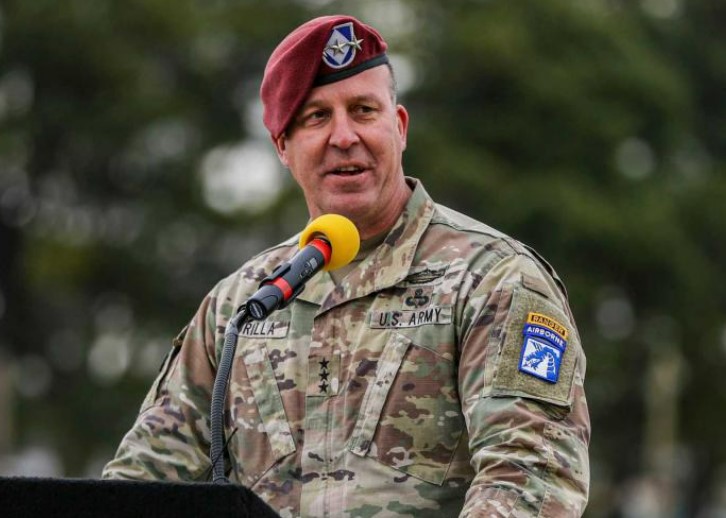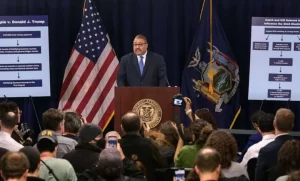The top U.S. general overseeing American forces in the Middle East made an unannounced trip to Israel on Tuesday, stating that he wanted to ensure that Israel’s military has everything it needs as it fights an intensifying conflict against the Palestinian militant group Hamas.
Army General Michael “Erik” Kurilla, the head of U.S. Central Command, is the most recent senior U.S. official to visit Israel ahead of an anticipated Israeli ground assault on Gaza. It occurs a day before Vice President Joe Biden’s scheduled visit to the country.
As international fears of a wider regional war grow, the U.S. military is increasing its firepower in the region to prevent Iran and other Iran-backed groups from becoming involved in the conflict.
Additionally, the Pentagon is rushing weapons, such as air defenses and ammunition, to Israel.
“I’m here to ensure Israel has what it needs to defend itself, with a particular focus on preventing other parties from escalating the conflict,” Kurilla told Reuters, which is traveling with him, before landing.
Kurilla was scheduled to conduct high-level meetings with Israel’s military leadership, a U.S. official told Reuters, to ensure a clear understanding of the close U.S. ally’s defense needs.
Kurilla was also anticipated to outline U.S. military support aimed at preventing the Israel-Hamas conflict from escalating.
The Biden administration claims that the deployment of a carrier strike group to the eastern Mediterranean and the impending deployment of a second carrier to the region are deterrents, not provocations.
The United States already has a network of bases with personnel, fighter aircraft, and warships in the Middle East.
A U.S. official said on Monday that the United States has instructed some personnel, possibly 2,000, to be ready to deploy within 24 hours if notified, instead of the usual 96 hours. This could include units that provide assistance such as medical aid.
Israel has pledged to annihilate Iran-backed Hamas, which controls the Gaza Strip, after Islamist fighters stormed Israeli towns eight days ago, killing 1,300 civilians and seizing hostages in the deadliest attack on Israeli civilians in its history.
It has imposed a total blockade on Gaza, home to 2.3 million Palestinians, and bombarded it with unprecedented air strikes. A ground assault is widely anticipated. There have reportedly been at least 2,800 fatalities in Gaza, with approximately a quarter of them being minors.
Monday in Israel, U.S. Secretary of State Antony Blinken held hours of discussions with Israel’s defense cabinet and was once forced to take refuge in a bunker for five minutes when air raid sirens sounded.
The focus of international diplomacy has been on preventing a spillover of the conflict, especially into Lebanon, where Iran-backed Hezbollah militants have been exchanging fire with Israel across the border for days.
Israel ordered the evacuation of 28 villages in a 2-kilometer-deep (1.2-mile-deep) zone near the Lebanese border on Monday, the most ominous sign yet that the conflict could spread to a new front. Hezbollah declared that it had attacked five Israeli positions.
In the frontier region between Israel and Hezbollah, last week’s clashes were the deadliest since the 2006 conflict.





